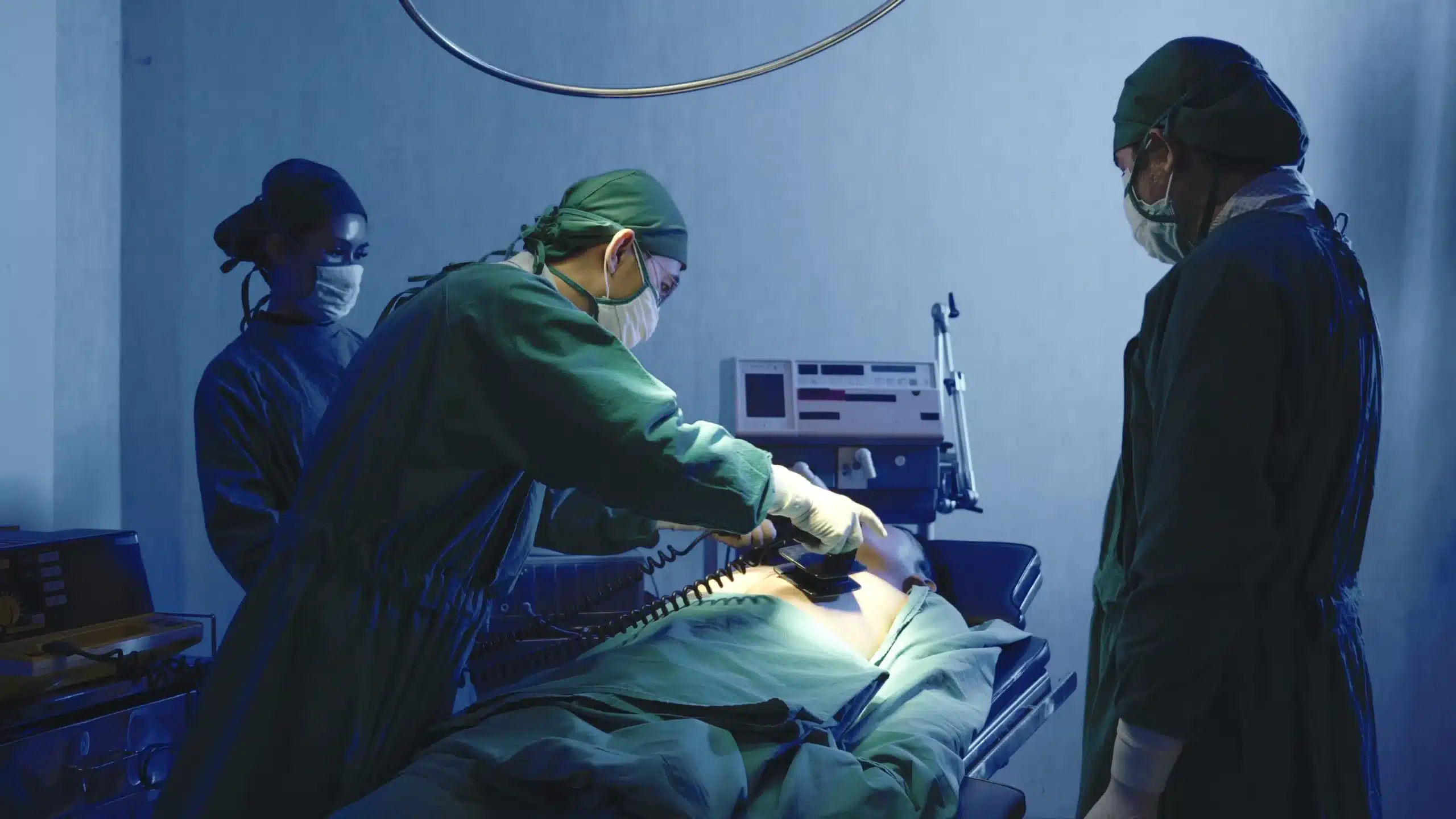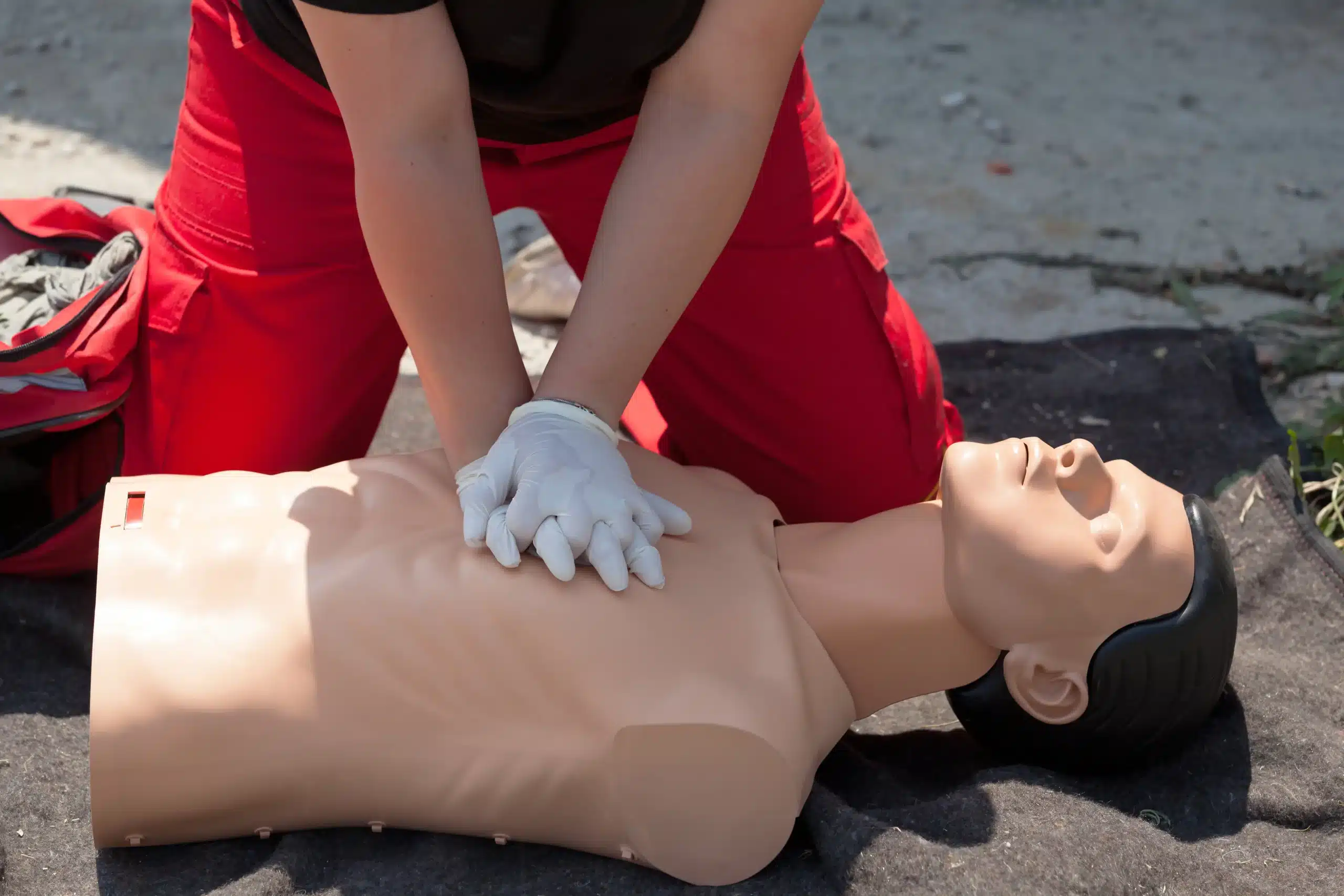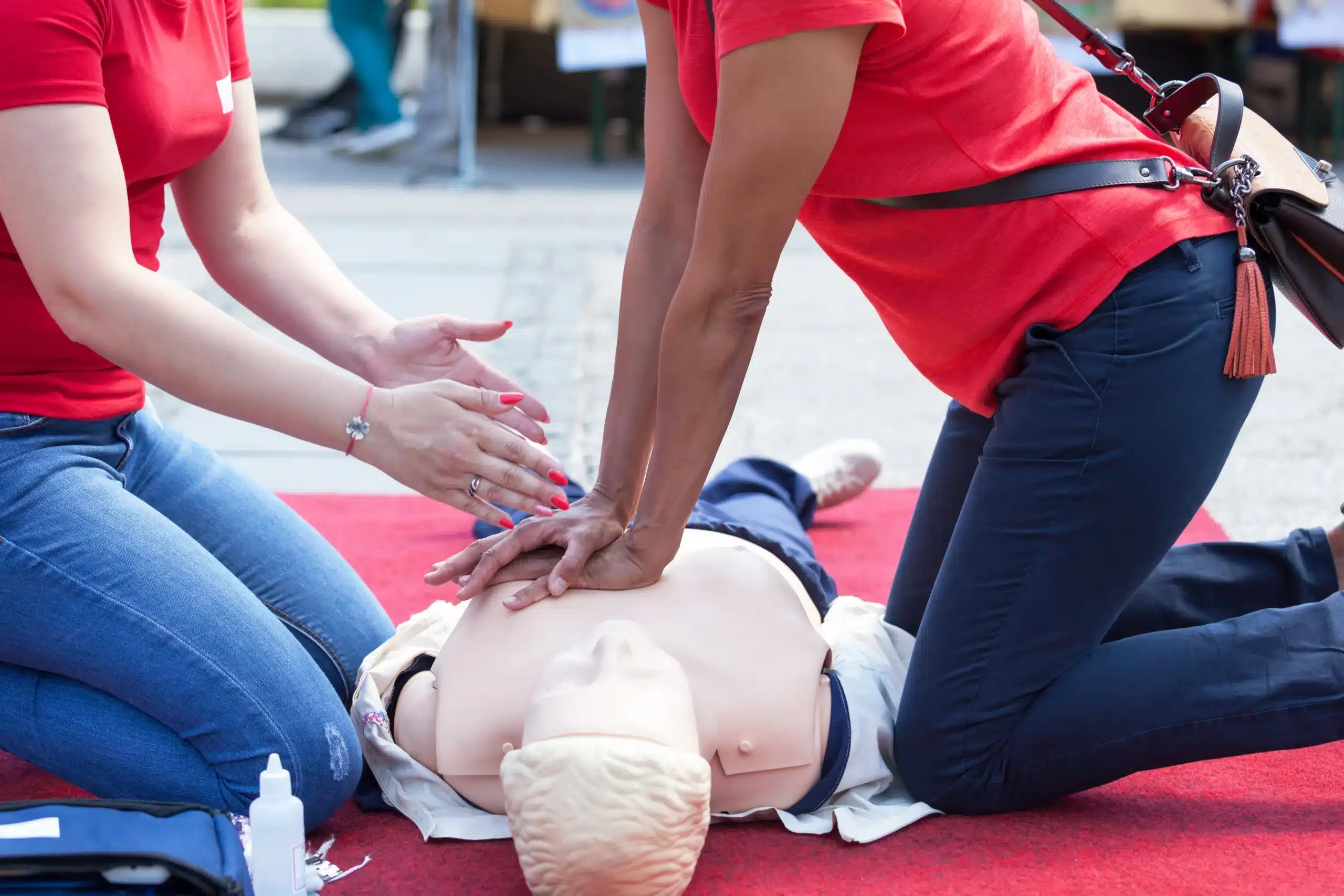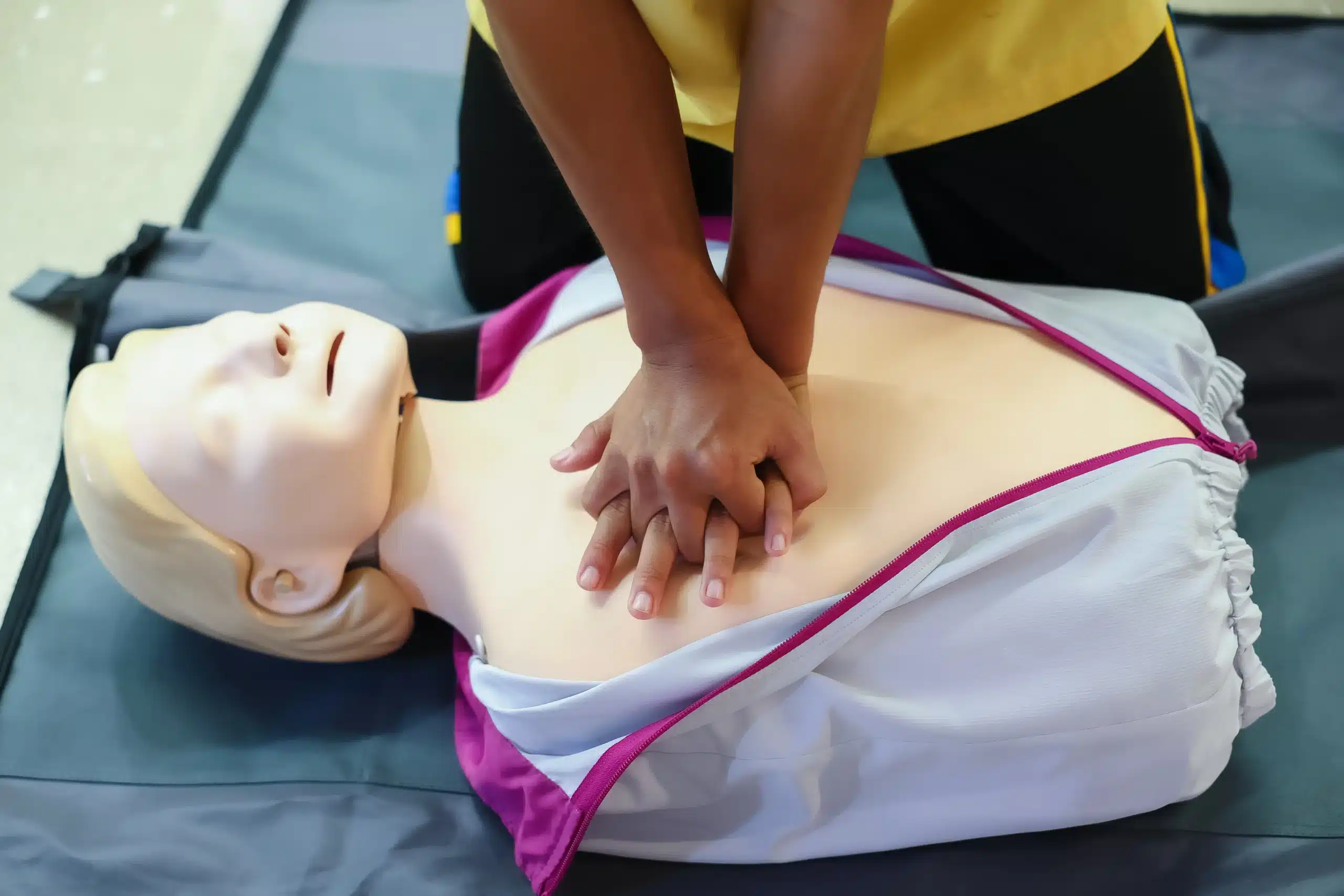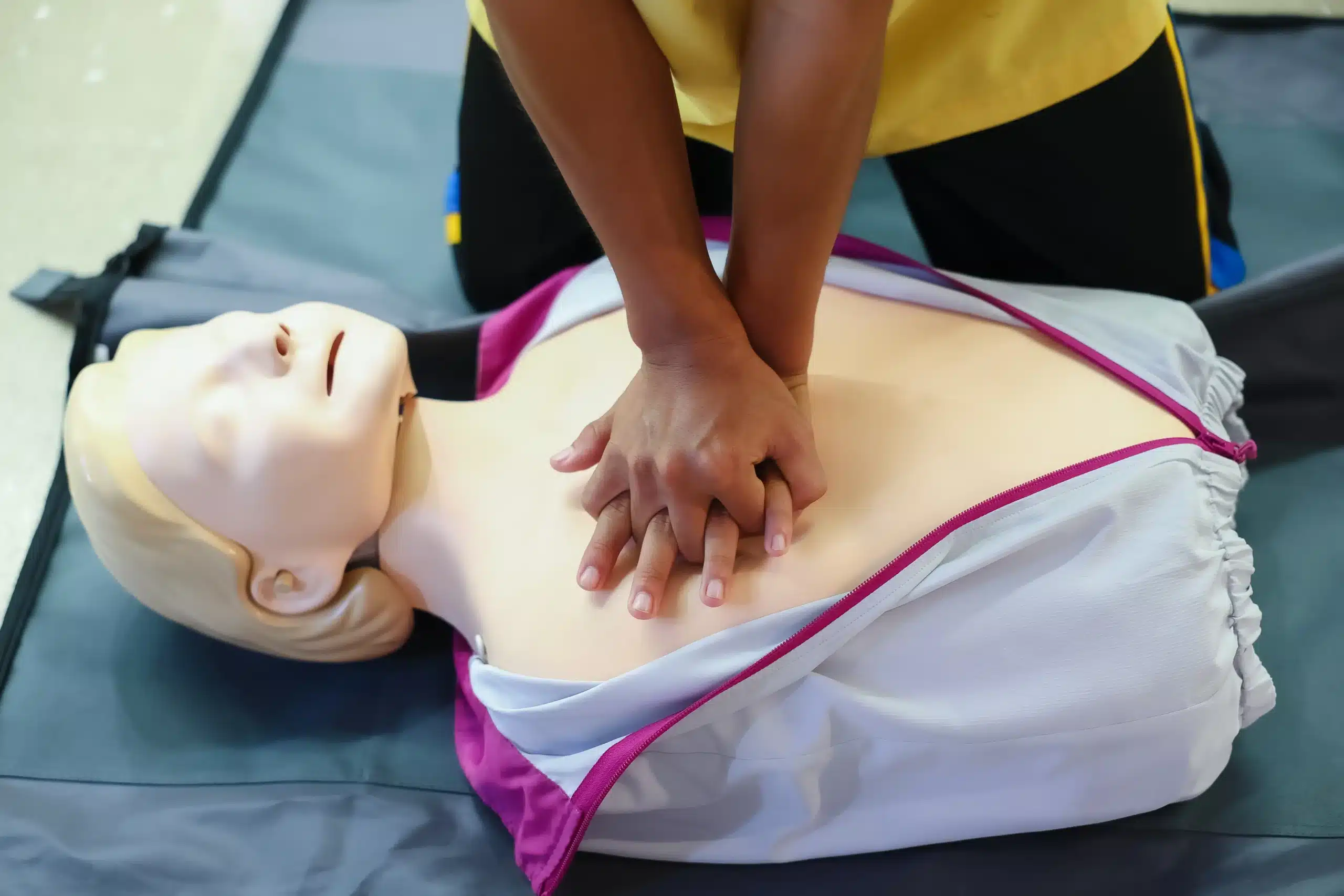Working in healthcare often means juggling a busy schedule while staying up-to-date with the latest life-saving techniques. PALS HeartCode training in San Jose offers a flexible path to Pediatric Advanced Life Support certification. This blended learning program combines online modules with an in-person skills session, allowing you to learn at your own pace and gain practical experience. In this guide, we’ll explore the benefits of PALS HeartCode in San Jose, covering everything from course structure and costs to finding the right training center. We’ll also share participant feedback, address common concerns, and help you determine if PALS HeartCode is the right fit for your career goals.
Key Takeaways
- PALS HeartCode blends online learning with hands-on practice: This flexible format lets you study at your own pace and then demonstrate your skills in person with a certified instructor.
- Comprehensive curriculum prepares you for pediatric emergencies: Learn essential assessment, resuscitation, and team dynamics skills to confidently manage critical situations involving infants and children.
- Affordable and convenient PALS certification in San Jose: Safety Training Seminars offers high-quality PALS HeartCode training with a low price guarantee, making it accessible for busy professionals.
What is PALS HeartCode?
PALS HeartCode is the American Heart Association’s (AHA) blended learning program for Pediatric Advanced Life Support (PALS) certification. It combines online coursework with a shorter, in-person skills session, making it a convenient option for busy professionals. This approach allows you to learn the material at your own pace online, then demonstrate your skills in a hands-on environment with an AHA Instructor. Safety Training Seminars offers this blended learning format, providing a flexible way to get your PALS certification.
Blended Learning Explained
The PALS HeartCode program uses blended learning to deliver a comprehensive educational experience. This means you’ll complete interactive modules, case studies, and simulations online at your own pace, followed by a hands-on skills practice session. This format allows you to absorb the information and review challenging concepts as needed before demonstrating proficiency in person. This blended approach is often preferred by learners who appreciate flexibility and a self-directed learning environment.
Key PALS HeartCode Components
The PALS HeartCode course covers essential content to prepare healthcare providers for pediatric emergencies. You’ll learn how to perform a pediatric assessment, including taking vital signs and understanding age-specific differences. The course also focuses on managing respiratory and cardiac emergencies, covering techniques like airway management, ventilation, and defibrillation. Finally, PALS HeartCode emphasizes the importance of team dynamics in pediatric resuscitation, highlighting communication and collaboration strategies. These skills are crucial for effective teamwork during critical situations, ensuring the best possible outcome for the patient. More information on PALS can be found on the American Heart Association website.
PALS HeartCode vs. Traditional PALS
The key difference between PALS HeartCode and traditional PALS lies in the delivery method. Traditional PALS courses typically involve a longer, in-person classroom session. PALS HeartCode, on the other hand, utilizes a blended learning approach. You’ll complete the cognitive portion of the course online through the AHA’s eLearning platform, then attend a shorter, in-person skills session to demonstrate your proficiency. Both options lead to the same AHA PALS certification, allowing you to choose the format that best suits your learning style and schedule.
Benefits of San Jose PALS HeartCode
Choosing PALS HeartCode certification in San Jose offers several advantages, especially for busy professionals. Let’s explore some key benefits:
Flexibility for Busy Professionals
Juggling work, family, and other commitments makes finding time for professional development a challenge. PALS HeartCode, a blended learning program from the American Heart Association (AHA), offers the flexibility you need. The program combines online learning with a shorter, in-person skills session, allowing you to complete the coursework at your own pace. This blended learning approach makes PALS certification more accessible, fitting into even the busiest schedules. You can study when and where it’s convenient for you, eliminating the need to block out entire days for traditional classroom training. Learn more about the program details through our PALS HeartCode San Jose guide.
Comprehensive Online Learning
The online portion of PALS HeartCode isn’t just convenient—it’s comprehensive. The interactive modules cover the same evidence-based material as traditional PALS courses, including pediatric assessment, resuscitation, and emergency care. You’ll learn through a variety of methods, including simulations, videos, and self-directed learning activities. This engaging format helps solidify your understanding of the material and prepares you for the hands-on skills session.
Hands-on Skills Practice
While the online modules provide a strong foundation, PALS HeartCode recognizes the importance of practical application. The program includes a mandatory in-person skills session where you’ll practice essential techniques like CPR, intubation, and vascular access under the guidance of a certified instructor. This hands-on practice is invaluable for building confidence and ensuring you’re prepared to respond effectively in real-world emergencies. You’ll receive personalized feedback from your instructor, helping you refine your skills and address any areas for improvement. For more information, review this helpful PALS HeartCode San Jose guide.
Improved Knowledge Retention
Studies show that blended learning programs like PALS HeartCode can lead to improved knowledge retention. The combination of online learning and hands-on practice reinforces key concepts and helps you retain information longer. Interactive modules, realistic scenarios, and personalized feedback contribute to a deeper understanding of the material. This translates to better preparedness and improved patient outcomes in critical situations.
PALS HeartCode: Course Structure & Costs
Online Portion: Content & Duration
PALS HeartCode uses a blended learning format, combining online coursework with an in-person skills session. The online portion allows you to learn at your own pace, typically taking 4–6 hours to complete. This self-directed learning covers essential pediatric life support knowledge and skills through interactive modules and simulated cases. The online portion costs $168.
In-Person Skills Session: What to Expect
After completing the online modules, you’ll attend a shorter, hands-on skills session. This session, costing $150, focuses on practicing essential techniques and receiving personalized feedback from certified instructors. Expect to spend about two hours in this in-person session, reinforcing your online learning and demonstrating competency in key PALS skills.
Total Certification Cost
The total cost for PALS HeartCode certification, including both the online and in-person components, is $318. This blended learning approach offers a streamlined and cost-effective path to PALS certification, especially for busy professionals. Safety Training Seminars offers a low price guarantee on all courses.
Discounts & Promotions
We encourage group registrations for PALS HeartCode training! Groups of 2–5 people can receive a discount on their in-person skills session. Use code PALS20 for 20% off. Check our website for the latest discounts and promotions.
Find PALS HeartCode Classes in San Jose
Ready to pursue your PALS HeartCode certification? Locating a quality training center in San Jose is straightforward. Here are a few avenues to explore:
Safety Training Seminars
Safety Training Seminars offers comprehensive PALS training designed to equip healthcare providers with the skills needed to manage pediatric emergencies. Our courses blend online learning with hands-on practice, allowing you to learn at your own pace and gain practical experience. We’re committed to providing high-quality training at an affordable price. Check our course calendar for upcoming PALS HeartCode classes in San Jose (Willow Glen) and learn more about our low price guarantee. You can also explore our other AHA courses, including BLS and ACLS.
Other Reputable Training Centers
Beyond Safety Training Seminars, several other reputable institutions in the area offer PALS certification and renewal courses. Consider exploring local hospitals and specialized training centers for additional options. A quick online search will reveal other providers near you.
AHA Training Centers
The American Heart Association plays a vital role in community health, and their training centers offer standardized PALS courses. These centers adhere to the AHA’s rigorous standards, ensuring a high-quality learning experience. You can find an AHA Training Center near you on their website. Learn more about the importance of PALS training and the AHA’s offerings in San Jose.
Emergency & Health Training Center
Emergency & Health Training Centers often provide a variety of emergency medical training courses, including PALS certification. These centers typically focus on practical skills and offer flexible scheduling options. Check with local centers for their course availability and pricing.
Prepare for Your PALS HeartCode Course
Getting ready for your PALS HeartCode course involves a few key steps. Understanding the prerequisites, technical requirements, and necessary materials will help you feel confident and prepared for a successful learning experience. We’ve outlined everything you need to know below.
Prerequisites & Requirements
Before enrolling in a PALS HeartCode course, you’ll need to demonstrate existing knowledge of life-saving techniques. This typically means providing proof of a current AHA BLS, ACLS, or PALS provider certification. Completing the online portion (Part 1) of any of these AHA HeartCode courses also fulfills the prerequisite. This foundation ensures you’re ready to build upon existing skills and learn the advanced concepts covered in PALS. You can find more information about our BLS courses on our website.
System Requirements for Online Learning
The PALS HeartCode course blends online learning with a hands-on skills session. You’ll need to complete the online modules before attending the in-person skills practice. Request access to the online materials at least 72 hours before your scheduled class. This provides ample time to work through the content and absorb the information. These online modules are crucial for understanding the core principles of pediatric advanced life support.
Materials for the Skills Session
For the in-person skills session, you’ll need a current PALS Provider Manual. This manual is essential for following along with the instructor and practicing the demonstrated techniques. You can typically purchase the manual as an eBook or paperback. Check with your chosen training center for options and pricing.
Tips for Success
Choosing the right PALS HeartCode provider is an important first step. Consider factors like schedule flexibility, cost, instructor experience, convenient locations, and class size. Our low price guarantee ensures you’re getting the best value for your training. Completing the online portion before your in-person skills session is highly recommended. This allows you to focus on mastering the practical skills during the hands-on portion. Browse our available PALS courses in San Jose to find a class that fits your needs.
Get PALS HeartCode Certified
Getting your PALS HeartCode certification is straightforward, blending online learning with a hands-on skills session. This flexible format lets you learn at your own pace and then demonstrate your skills in person.
Complete the Online Modules
First, complete the online PALS HeartCode modules through the American Heart Association’s website. This portion covers the core PALS curriculum, including pediatric assessment, treatment algorithms, and effective team dynamics. Work through the interactive lessons, case studies, and self-assessments at your convenience.
Pass the Skills Assessment
After finishing the online modules, schedule an in-person skills session with Safety Training Seminars. This session lets you practice and demonstrate your skills in a simulated environment. Our instructors will guide you through various scenarios, providing feedback and ensuring you’re confident in your abilities. Remember, you must complete the online HeartCode PALS course before attending this skills session. Find available PALS courses in San Jose on our website.
Receive Your PALS Certification
After successfully completing both the online modules and the in-person skills session, you’ll receive your American Heart Association PALS provider card. This nationally recognized certification validates your knowledge and skills in pediatric advanced life support.
Certification Validity & Renewal
Your PALS certification is valid for two years. To maintain your credentials, recertify before it expires. We offer PALS recertification courses to help you stay current with the latest guidelines.
Common Concerns & Misconceptions
It’s normal to have questions before signing up for a course like PALS HeartCode. Let’s address some common concerns and clear up any misconceptions about this valuable certification.
Who Should Take PALS HeartCode?
One frequent misconception is that Pediatric Advanced Life Support (PALS) certification is only for doctors and nurses. While it’s crucial for these medical professionals, PALS training benefits anyone regularly interacting with children or infants professionally. This includes paramedics, emergency medical technicians (EMTs), respiratory therapists, and even childcare providers. Anyone who might encounter a pediatric emergency can gain essential skills and confidence from a PALS certification.
Address Time & Cost Concerns
We understand that time and budget are important when considering professional development. PALS HeartCode is designed with these factors in mind. The blended learning format, combining online coursework with in-person skills practice, offers flexibility. You can complete the online modules at your own pace. This often means less time away from work or family compared to traditional classroom-based courses. While you’ll need to request HeartCode assignments at least 72 hours before your skills session, this advanced planning helps you manage your time effectively. Regarding cost, check with your employer; they may cover the certification. Safety Training Seminars also offers a low price guarantee, ensuring quality training at a competitive price.
Debunking Online Learning Myths
Some believe online learning isn’t as effective as in-person instruction. However, PALS HeartCode’s online portion provides comprehensive, interactive training that meets the same standards as traditional PALS courses. The online modules cover essential concepts and procedures, using simulations and interactive exercises. It’s important to remember that PALS certification provides a specialized focus on pediatric emergencies, going beyond basic CPR. This specialized knowledge is critical for anyone working with children, and the online component of HeartCode delivers this information effectively. The in-person skills session ensures you can apply your knowledge in a practical setting.
Participant Experiences & Feedback
Choosing the right PALS HeartCode course is a big decision, so hearing from other healthcare providers is helpful. We’ve gathered feedback from past participants to give you a better sense of what to expect.
Quality of Instruction & Support
Students consistently praise the quality of instruction and support they receive in PALS HeartCode training. Many appreciate the flexibility of online learning, allowing them to study at their own pace and review challenging concepts as needed. The realistic scenarios in the online modules help bridge the gap between theory and practice, preparing participants for real-world emergencies. The in-person skills session is highly valued, providing a safe space to practice techniques and receive personalized feedback from certified instructors. Instructors are often commended for their clear communication, patience, and ability to create a supportive learning environment. This positive feedback is similar to what we hear from students in our BLS courses in San Jose.
Real-World Skill Application
The blended learning approach of PALS HeartCode resonates with busy healthcare professionals. It makes certification more accessible by offering the convenience of online learning combined with essential hands-on practice. The program’s emphasis on both theoretical knowledge and practical skills application ensures participants develop a comprehensive understanding of pediatric emergency care. PALS certification equips healthcare providers with the skills to manage pediatric emergencies effectively, ultimately leading to improved patient outcomes. You can learn more about the importance of PALS training on our blog. This focus on practical application is a key component of all our courses, including our RQI program for healthcare professionals.
PALS HeartCode or Traditional PALS?
Choosing between PALS HeartCode and traditional PALS certification depends on your learning style, schedule, and career goals. Let’s break down the key differences to help you decide which path suits you best.
Compare Time & Flexibility
PALS HeartCode offers significant flexibility. The online portion allows you to learn at your own pace, fitting the training around your existing schedule. This blended learning approach is ideal for busy professionals juggling work, family, and other commitments. You can complete the online modules anytime, anywhere, with internet access. Traditional PALS courses, while comprehensive, require a fixed in-person schedule, which can be challenging for those with limited availability. If you need a flexible learning experience, PALS HeartCode may be a better fit. This format lets you review the material as needed and complete the online portion at your convenience before scheduling the hands-on skills session.
Evaluate Learning Styles
Think about how you learn best. If you thrive in a self-directed environment and enjoy online learning, PALS HeartCode may be more engaging. The interactive modules, simulations, and case studies offer a dynamic learning experience. Traditional PALS courses follow a more instructor-led approach, beneficial for those who prefer face-to-face interaction and direct guidance. Both PALS HeartCode and traditional PALS cover the same core material and meet the same American Heart Association standards. The key difference lies in the delivery method. PALS certification equips individuals with the skills to recognize and respond to life-threatening emergencies involving children and infants. The PALS HeartCode program combines online learning with hands-on skills practice.
Consider Career Requirements & Employer Acceptance
Before choosing a PALS course, check your employer’s requirements. While both PALS HeartCode and traditional PALS certifications are widely accepted, some employers may have specific preferences. In San Jose, American Heart Association PALS classes are essential for advancing pediatric emergency care. Ensure the course you choose aligns with your career goals and employer expectations. Many mistakenly think that experienced healthcare providers don’t need PALS certification training. Regardless of your experience level, maintaining current PALS certification demonstrates your commitment to providing high-quality patient care.
Related Articles
- Pediatric Advanced Life Support (PALS) in San Jose – San Jose CPR Classes
- HeartCode ACLS San Jose: Your Complete Guide – San Jose CPR Classes
- HeartCode BLS Santa Clara: Your Certification Guide – San Jose CPR Classes
- PALS Certification Classes in San Jose | AHA PALS Courses
- CPR Training Center in San Jose | BLS, ACLS, PALS Classes
Frequently Asked Questions
What exactly does the PALS HeartCode training cover?
PALS HeartCode teaches you the essential skills to respond to life-threatening emergencies in infants and children. The course covers pediatric assessment, airway management, rhythm recognition, and effective team dynamics during resuscitation. You’ll learn how to quickly assess a child’s condition, provide appropriate interventions, and work effectively as part of a team.
How long does it take to get PALS HeartCode certified?
The online portion of PALS HeartCode typically takes 4–6 hours to complete, but you can work through it at your own speed. The in-person skills session takes approximately two hours. Because the online portion is self-paced, you control how long the entire process takes.
If I take PALS HeartCode, is the certification the same as traditional PALS?
Yes, the PALS HeartCode certification is equivalent to the traditional PALS certification. Both meet the same American Heart Association standards and are equally recognized by employers. The only difference is the flexible, blended learning format of HeartCode.
How much does PALS HeartCode cost, and are there any discounts?
The total cost for PALS HeartCode is $318, which includes both the online portion ($168) and the in-person skills session ($150). Safety Training Seminars offers a low price guarantee and discounts for group registrations. Check their website for current promotions.
What if I have more questions about PALS HeartCode or need help registering?
Safety Training Seminars is ready to assist you. You can visit their website, call them directly, or send an email with your questions. They can help you with registration, course information, and any other concerns you might have.


